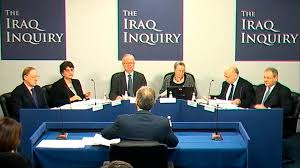A long-delayed inquiry into Britain’s role in Iraq’s 2003 invasion found out that then prime minister Tony Blair took his country into a badly planned, woefully executed and legally questionable war.
A long-delayed inquiry into Britain's role in Iraq's 2003 invasion found out that then prime minister Tony Blair took his country into a badly planned, woefully executed and legally questionable war.
The Chilcot report found the decision to join the US-led invasion was taken before all other options had been exhausted and on the basis of false intelligence.
The inquiry strongly criticized the UK government’s decision-making process in the run-up to the invasion.
The circumstances in which the UK decided that there was a legal basis for military action were “far from satisfactory,” it said.
Blair faced particular criticism after pledging to support US president George W. Bush the year before the invasion "whatever" happened and failing to ensure "there was a flexible, realistic and fully resourced plan".
More than 150,000 Iraqis had been killed by the time most British troops withdrew in 2009, while 179 British soldiers also lost their lives. The country remains plagued by sectarian violence.
Responding to the report in a short statement Blair insisted he had acted in Britain's "best interests".
"Whether people agree or disagree with my decision to take military action against Saddam Hussein, I took it in good faith and in what I believed to be the best interests of the country."
Unveiling the 2.6 million-word report, which took seven years to complete, inquiry chairman John Chilcot said it was "an account of an intervention which went badly wrong, with consequences to this day".
More than 100 anti-war protesters gathered outside the conference centre where the report was published, with many shouting: "Blair lied, thousands died" and "war criminal Tony Blair".